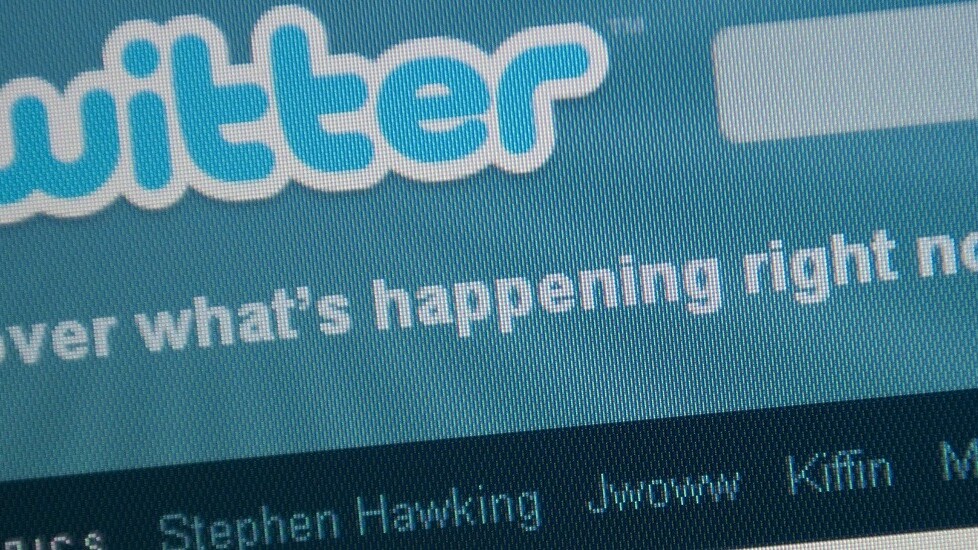
Tools that promise to gain you hundreds or thousands of followers on social networks in a short amount of time and with little effort are nothing new. They often violate Twitter’s Terms of Service (ToS), but can sometimes do as advertised and fill your account with spammy-seeming fake followers.
TargetPattern, however, is a tool that’s just made it to market and promises to make it easy to get you thousands of followers in just a matter of weeks, so we did what you’d expect of your favorite tech site: we tested it out for you.
Signing up is simple enough, just click the ‘start your free campaign’ button and enter five terms that are relevant to you on Twitter. For our test, we went with things like Facebook, BBC News, Google, Apps and Nexus 5, but don’t worry you can change these later.
What these terms do is help to target the users and content that TargetPattern will identify as relevant to you, and in our experience, this part of it seemed to work pretty well.
Initially, there’s a free trial but after this you’ll need to shell out between $19 and $99 per month if you want to keep access to the service. The more you spend, the more ‘projected followers’ you’ll receive and the more ‘impressions’ and keyword terms you can use to target people.
To be clear, we obviously didn’t put this to work on any of TNW’s main Twitter accounts, instead we used a TNW team member to be the guinea pig.
How it works
While there’s an algorithm at work on the back-end to try and keep things as relevant as possible, on the user-end TargetPattern essentially works simply by automatically favoriting tweets of other users that are likely to be relevant to your profile – both in who they are and the content they share.
It might sound pretty simple, and an unlikely way to gain masses of new followers organically, but interaction is the key to growing those follower numbers for most users on any social network and by favoriting a tweet you are interacting and giving opinion (in some way) without actually needing to do anything at all.
It’s aimed at businesses and people who use Twitter professionally though, rather than people that simply want to gain lots of followers quickly through spammy means.
This means that for best results, users need to have an active Twitter profile with keywords that match, or are related to, the same subjects as the targeting terms.
Just how many tweets will it favorite? LOADS.
In our three week test, it reports 16,254 ‘impressions’, where impressions really equates to favorites.
Simply log in to your account, via Twitter, and it’ll generate a report of your stats (example shown below) showing which keyword converted most people into followers. If a word doesn’t seem to be yielding results, you can just change it for a new one.
Tell me what I really want to know
You probably came here wanting to know how many new followers the test got. So here it is.
From those 16-odd thousand impressions, we saw an increase of 1,606 new followers. Roughly one in ten people followed our account after TargetPattern favorited a tweet of theirs, so clearly it works. This was from a starting point of just a few thousand followers, meaning it represented a significant increase proportionally.
I mentioned above that the targeting of users seemed pretty accurate, and it did, mostly recommending people that were relevant to our purposes.
The same wasn’t quite true of the actual tweets it targeted though; they weren’t massively off target but the relevance or interest was questionable in some cases.
So what we’ve found here is a tool that can genuinely gain you Twitter followers through organic means that promises never to follow, tweet, retweet or message people on your behalf. All it does is favorite tweets based on keywords.
Here’s why I won’t use it
When I started out writing this, I did actually connect it to my own personal Twitter account too. I didn’t know how it worked and was curious to find out. In honesty, I left it running for only around half a day but once I actually looked at how it worked, I disconnected it. For the record, in the few hours it was getting up and running, it gained me six followers.
This was a personal choice. It had only been running a short while, but had already favorited a few things that made me go ‘hmmm’, or things I disagreed with the viewpoint of, but to be fair, the company says it needs at least a few days for the algorithm to properly target users and tweets. Also, while I disagreed with some of the tweets it had selected, there was nothing outright outrageous or offensive favorited – which always has to be a consideration when using a tool like this.
So why disconnect it then? Because it’s faking interaction.
It all comes down to how you use and view Twitter. My account is half work, half personal – you might get a Tweet to something I wrote, something I read or watched, or you might get the obligatory stupid GIF. Though, those are rarer.
But the point is, it’s me.Faking interaction by automatic favoriting isn’t me – and feels even weirder when people start thanking you for favoriting something that you’ve never actually seen.
It also depends how you view the favoriting function itself. If, like me, you see it as a way to let people know that you agree with or like something they’ve tweeted then TargetPattern isn’t the tool for you.
If, however, you’re happy with the idea that it’s being used simply to increase your exposure to people that are relevant and interested in the same things as you, then you’ll likely be more willing to give it a whirl.
One of the upsides of it, for me, is that it reminded me I really should make use of the favoriting function more. I rarely do, but when I do, I want it to be because I sat there and agreed with what was being said, or at least wanted to be part of the conversation, even if it was to disagree. With this, you’re part of a conversation that you don’t know you’re actually a part of, unless you trawl through those thousands of favorited tweets.
As I said, it didn’t favorite lots that I was concerned by, but neither did it favorite a lot that I would have, had I done it in person. And that’s really the crux of it for me: I use favorites to convey that I like what has been tweeted, and this tool is faking that social interaction. I’m not really concerned about people trawling though my favorites and seeing thousands of randomly added tweets, but the thought that someone could take some sort of affirmation or reinforcement about the content of a tweet I disagree with isn’t something that sits well with me.
Is this actually spam?
It’s a pretty fine line in my opinion, but no, I don’t think it’s spam. Automated favoriting isn’t invasive in the way directed tweets are, for example, but it’s also not real social interaction, so where’s the true value? There’s also little clarity here around the rules of what’s allowed and what’s not, or indeed, what Twitter may ban in the future. Favoriting on Twitter, right now, is limited to a generous 1,000 per day, but who’s to say that couldn’t be reduced in a future update?
While there aren’t yet lots of tools like this, TargetPattern isn’t flying completely solo – there is also ‘FollowGen’, which has a very similar-looking layout and the exact same pricing structure. Shortly after launching the service, its founder then wrote a blog post with the title ‘Why Twitter Should Shut Me Down‘
From TargetPattern’s perspective, it says that there are indeed a few companies using a similar approach, but that it is different because of the algorithm that doesn’t just favorite any old tweet, but instead favors those where the system has determined the person is likely to be interested in you and follow you back. According to TargetPattern, less than 10 percent of tweets pass through the system’s filter and conversion rates tend to be 10 percent or higher, versus 2 – 3 percent with other services.
Although these are all legitimate services seemingly working within the boundaries laid out by Twitter, it’s worth bearing in mind that spammers using automated scripts to favorite tweets in a bid to increase follower count have also been hitting the headlines recently. It’s particularly noticeable when people start bizarrely favoriting old tweets that are completely banal.
Update: Looking at Twitter’s rules, it says:
Spam: You may not use the Twitter service for the purpose of spamming anyone. What constitutes “spamming” will evolve as we respond to new tricks and tactics by spammers. Some of the factors that we take into account when determining what conduct is considered to be spamming are:
– Randomly or aggressively favoriting Tweets through automation in an attempt to bring attention to an account, service or link.
So while the services don’t seem to have been banned for now, there’s seemingly no guarantee that Twitter will keep its current definition of exactly what constitutes ‘spamming’.
Conclusion
Whether you view use of the favoriting function in this way as spam or not, really depends on how you use it in the first place. We’ve asked Twitter for some clarification around this area in its Terms of Service, but so far haven’t heard anything back.
What I won’t argue with, though, is that the followers it attracts seem to be mostly relevant and real. If you’re a business that simply wants to grow your potential audience with the absolute minimum of effort, then this tool can probably help you – you’ll still need to have an active account though, remember.
But what it’s also doing is making ‘favorites’ more arbitrary as a ‘sharing’ concept than ever; removing the social from social media.
As I said, my account is half work, half personal – but it’s all me, and I’d rather it stayed that way.
Featured Image Credit – Getty Images
Get the TNW newsletter
Get the most important tech news in your inbox each week.







